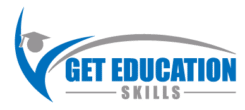Starting a meaningful path in any field takes more than showing up to class or clocking in at work. It begins with a direction and a plan that reflects your strengths and interests. Instead of drifting from one option to another, you’ll move forward with more purpose once you understand what suits you. Today’s markets include many specialized roles, each requiring a unique skill set and background. That’s why it’s important to look into your options early on. Some roles are based on technical know-how, while others rely more on communication, problem-solving, or design. Knowing where you fit in helps you choose the right training and avoid spending time in the wrong program or role.

Here’s how you can get started:
Start with Self-Assessment
Before diving into any course or training, it’s smart to assess what you actually enjoy and where you naturally perform well. Do you prefer working on solo tasks or group efforts? Are you more focused on analysis, creativity, or fixing problems? These questions help narrow your choices. Tools like personality quizzes, interest checklists, and even skills inventories can reveal paths that align with your strengths. Think about classes or projects you’ve enjoyed in the past. Pay attention to where you lose track of time because you’re fully engaged. That’s a sign of real interest. Self-assessment isn’t about boxing yourself into one role. It’s a first step to understanding how you operate best and where your focus should go next.
Explore Career Paths in Complex Technical Fields
Fields built on logic, structure, and design attract those who like to solve real-world problems. Whether it’s working on bridges, software, electronics, or environmental systems, these roles are hands-on and thought-driven. Many students explore these paths to find a role that balances problem-solving with practical results. Online platforms and guides are good places to research, where you’ll find an overview of different disciplines. They can help explain the day-to-day work, training paths, and tools used in each specialty. It’s especially useful when learning about the many types of engineers, helping you compare civil, mechanical, or electrical roles. You’ll also learn what certifications might be required and what subjects to focus on in school or training.
Set Clear, Achievable Goals
Setting clear goals gives your learning and work more structure. Begin with smaller steps, like completing a course or building a portfolio. These small wins build confidence. Then, move on to larger targets, such as getting licensed, starting a new role, or switching to another area. It helps to write down these goals and revisit them every few months. You may find that your interests shift, or you’ve grown past an early target. That’s okay! Goals are meant to evolve. When you give your plan some structure, it’s easier to stay on track. Even if challenges come up, your focus remains steady. Clarity doesn’t mean being rigid. It means moving forward with a plan instead of just hoping things fall into place.
Research Requirements for Entry-Level Positions
Every role has a starting point, and knowing that point helps you prepare. Some fields require a two-year degree or certification, while others require four years of study or hands-on training. You might also need an exam, internship, or license, depending on the field. Before you begin any program, read up on the basic qualifications. Look at job descriptions and training guides. See what hiring managers typically expect. If there are gaps in your preparation, figure out how to fill them. This helps you avoid surprises and wasted time. It also gives you a clear timeline for how long it might take to reach your first goal. Planning with this knowledge keeps your path smoother and more focused.
Build Skills That Transfer Across Roles
In a changing work world, skills that apply across roles are more useful than ever. These include things like clear writing, giving feedback, managing your time, and solving problems without constant direction. While technical training might get your foot in the door, these universal skills often lead to longer-term growth. They also help if you change fields later on. You can build these by working on group projects, volunteering, or taking on leadership roles in training programs. Soft skills aren’t just a bonus. They often make you stand out in interviews and evaluations. Employers often look for people who work well with others and communicate clearly. These are habits worth developing now, no matter what your long-term goals may be.
Take Advantage of Internships and On-the-Job Training
Experience outside the classroom helps you grow faster. Internships, part-time roles, and apprenticeships give you a closer look at what daily tasks involve. These options help you apply what you’ve learned in real-world situations. Even unpaid roles can give you insight and make you more confident. Many people discover what they like or don’t like by doing the actual work. You also meet people who can give advice or refer you to other opportunities. Hands-on learning builds discipline and lets you develop practical skills, not just theory. If a formal internship isn’t available, try shadowing someone for a day or volunteering in a related area. These early experiences can help shape your long-term direction and add value to your resume.
Stay Current with Trends and Tools
Things change fast across industries. What’s useful today might become outdated in just a few years. That’s why it helps to stay informed. You don’t need to follow every trend. However, knowing the basic updates in your field keeps you competitive. Read blogs, follow industry pages, or attend short workshops. Some fields introduce new tools or software every year. If your work relies on tech, learning those updates helps you adapt quickly. It also shows that you’re flexible and willing to grow. You can also look at online courses or certifications that focus on new tools without committing to a full program. The goal isn’t to chase every trend but to stay aware enough that you’re not caught off guard.
Long-term progress depends on effort, planning, and adaptability. You don’t need to have everything figured out from the start. What matters most is staying focused, learning from real-world experiences, and adjusting when needed. Explore your interests, study what each field involves, and map out a plan that makes sense for you. Along the way, build habits that apply across roles, like good communication and strong time management. When you take time to reflect, connect, and keep learning, you create a clear path toward lasting improvement. Each step you take adds to your ability to handle what comes next. Stay active in your own growth, and you’ll be prepared for both change and opportunity.








